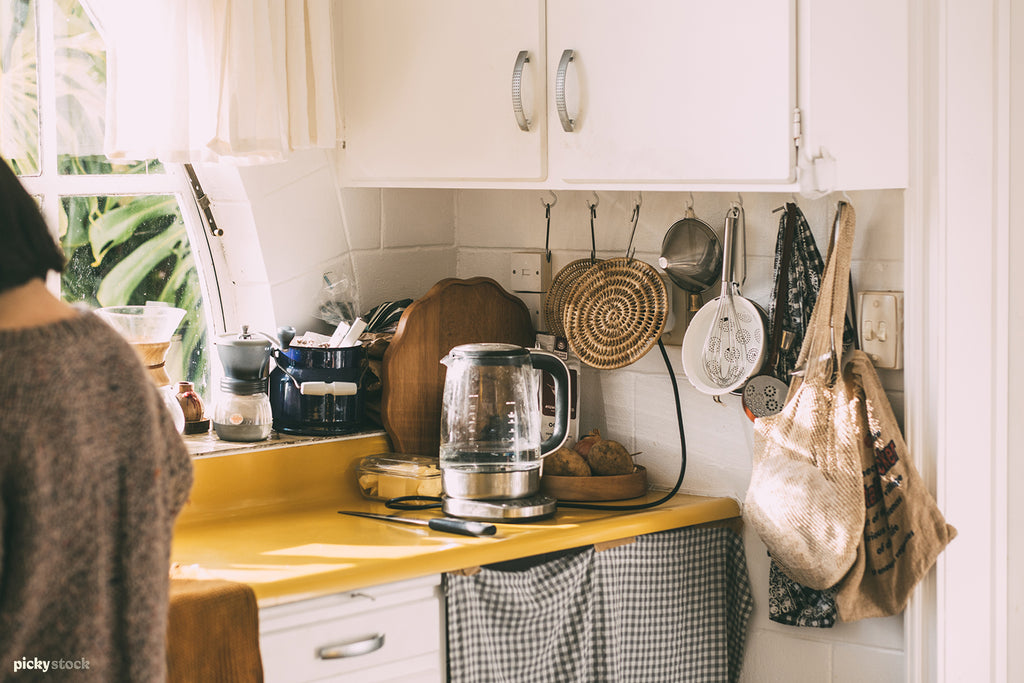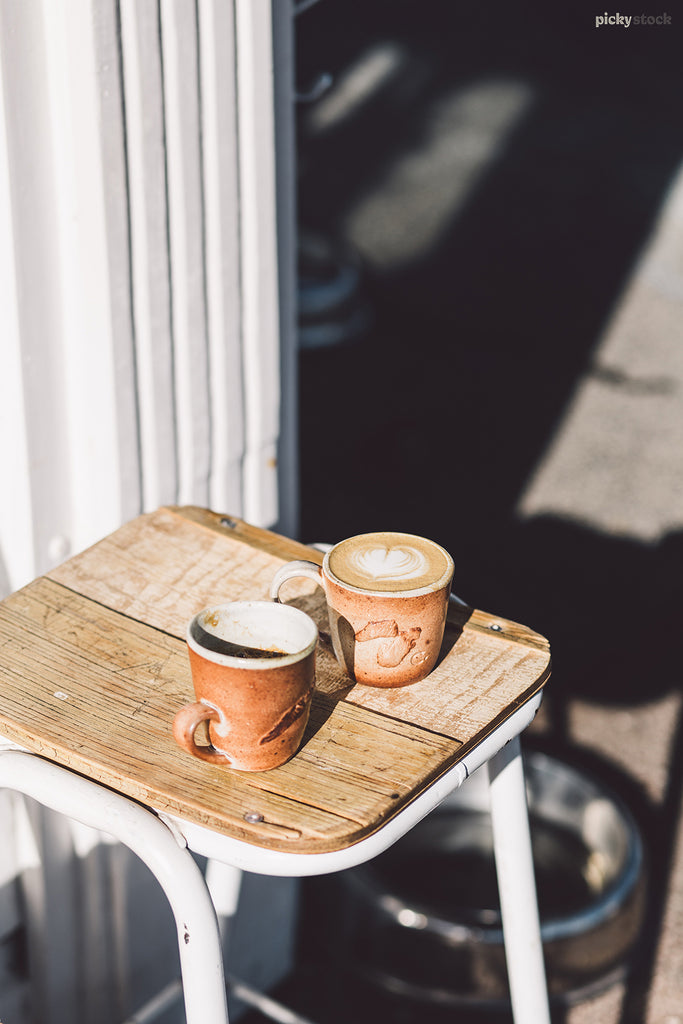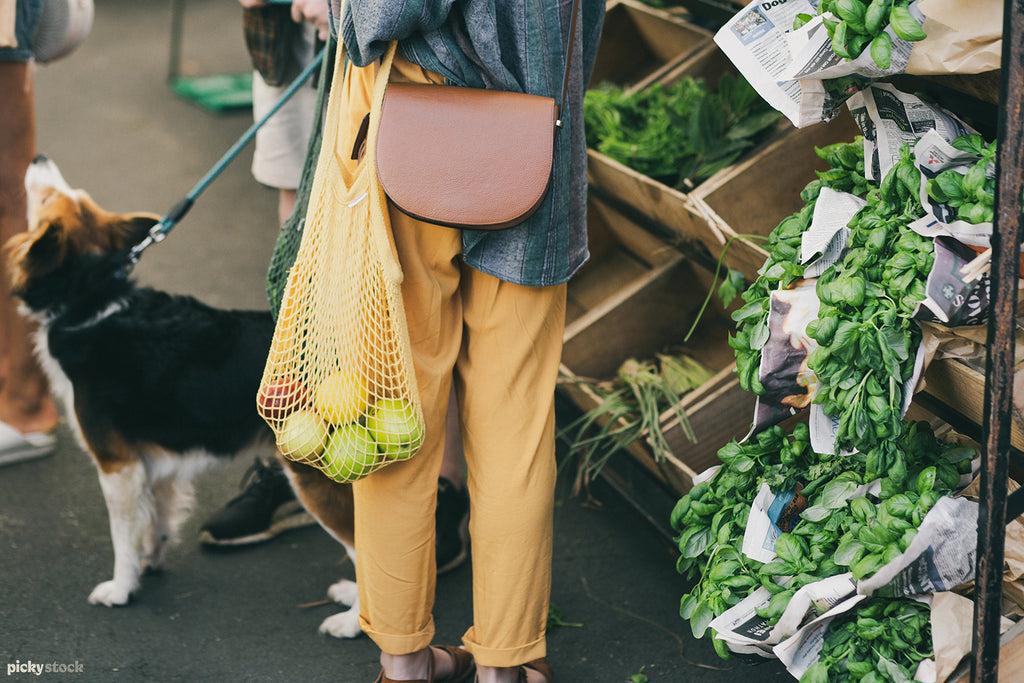
Yarns with...Tracey Creed.
by Kimberley Torrie
·
Picky: When did you first pick up a camera? Please tell us your backstory!
Tracey: My first job out of university was a marketing role at Ceres Organics in 2014, primarily focused on content creation. At this time, the art of food photography was taking form, and it was highly inspiring. So my boyfriend and I saved up for a Canon 6D and the 100 mm macro lens. That was where I started, and I still today use that camera and lens.
How would you describe your photographic genre / style?
Based on a believable narrative. I do not over-compose my images. I love documenting daily life, creating imagery that celebrates the mundane and shifts perspectives of what is desirable. Creating a relatable image that evokes emotion yet is uncomplicated.
Also, people don't want to share an ad. People are tired of being sold to - and if you do want someone to buy your product or service or an idea then understand that this is an emotional transaction. For me, photography is about paying attention to things in life, which exist, not what needs to be created or faked.

What’s your motivation to create the work which you create?
Photographs tell us much about what the photographer wants us to see, and not see. My motivation is to make visible what appears to be invisible. Producing work that prioritises sustainability and positivity—socially and with respect for Mother Earth. I am also an advocate for animal rights.
We all need to be hyper-conscious of the role our work plays in the broader environments, our community and our economy. Mad Men is easily one of my favourite television series, and this Don Draper quote from Season 3, Episode 2 summarises my motivation "If you don't like what is being said, then change the conversation."
What sort of imagery would you like to see more of around Aotearoa?
Authentic imagery. Mainly due to the negative impacts modified imagery has on the human mind and spirit. In a time where we're constantly targeted by false information and manipulated images, people are looking for authenticity. Globally people are comparing their lives/bodies/skin and so on to those of others feeling diminished by much of what they see on social media. This is where the majority of photographic content is consumed so there is a real opportunity to improve mental health outcomes by creating imagery through a realistic lens.
Favourite subject to photograph?
Food, but only plants, as I follow a vegan diet—I have for twenty years now.

Favourite image of yours on Picky?
Chairs of coffee. I took this photo at Crumb in Grey Lynn, Auckland. My sister and I had gone for coffee, and those are our coffees. I quickly took that one frame before we sat down.

If you could only photograph one person / place / object for the rest of your life, what would it be?
Pigeons. I have a fascination. People say they are rats with wings, but pigeons are a displaced species and quite misunderstood. Pigeons are studied to understand the impacts of air pollution on humans; since we live in the same environments, they eat our food. Pigeons are also everywhere, so it would not matter where I was in the world; I would always find pigeons to photograph.
As a female photographer, what would you like to see more of in the creative, photographic or media landscape in NZ?
A celebration of form and a shift towards less conventional beauty standards. We still need more diversity and inclusivity. Brands, or the people within these businesses, need to consider the consequences of conforming. There are a lot of people who can not relate to the vast majority of imagery produced because they are not represented.
How do you feel about the current creative climate in NZ?
Undervalued. Broadly speaking, and this is from my experience, while limited, there is a lack of appreciation for creative services. Photographs are used to generate tens to hundreds of thousands of dollars in revenue, yet many people will not associate the creative with sales results which is disappointing.
In photography, there are elements of what makes a photo good—or not. Some of which are not subjective, yet, how many photographers missed out on a job because someone within a company had a friend who could take that photo or the brand ended up downloading something for free on Unsplash? It is on those within the creative space to educate our clients, to raise expectations, and the level of imagery used so that others aspire higher. This is why I was excited when you announced Picky, because this is what your platform is working towards.

“Picky Pointer” – Is there one tip, trick or life hack which makes your job easier?
I feel that my work is only as good as my references. I will have an idea of how I want the images to look, and this is primarily informed by the vast quantities of imagery I have consumed across multiple platforms and physical publications. I plan all my photography work around references. The photograph is not made until you bring something into it, and that can be your life experience, and it can also be your point of reference. Understand what constitutes good work and consume a lot of it.
What’s next for you?
In terms of photography, documenting inspiring people in the sustainability space for a website my friend and I work on called Lagom. Lagom is an online editorial platform focused on sustainability for those wanting to tread more lightly on this Earth—and photographing a recipe e-book.
Find Tracey Creed's collection on Picky here.
Tracey: My first job out of university was a marketing role at Ceres Organics in 2014, primarily focused on content creation. At this time, the art of food photography was taking form, and it was highly inspiring. So my boyfriend and I saved up for a Canon 6D and the 100 mm macro lens. That was where I started, and I still today use that camera and lens.
How would you describe your photographic genre / style?
Based on a believable narrative. I do not over-compose my images. I love documenting daily life, creating imagery that celebrates the mundane and shifts perspectives of what is desirable. Creating a relatable image that evokes emotion yet is uncomplicated.
Also, people don't want to share an ad. People are tired of being sold to - and if you do want someone to buy your product or service or an idea then understand that this is an emotional transaction. For me, photography is about paying attention to things in life, which exist, not what needs to be created or faked.

What’s your motivation to create the work which you create?
Photographs tell us much about what the photographer wants us to see, and not see. My motivation is to make visible what appears to be invisible. Producing work that prioritises sustainability and positivity—socially and with respect for Mother Earth. I am also an advocate for animal rights.
We all need to be hyper-conscious of the role our work plays in the broader environments, our community and our economy. Mad Men is easily one of my favourite television series, and this Don Draper quote from Season 3, Episode 2 summarises my motivation "If you don't like what is being said, then change the conversation."
What sort of imagery would you like to see more of around Aotearoa?
Authentic imagery. Mainly due to the negative impacts modified imagery has on the human mind and spirit. In a time where we're constantly targeted by false information and manipulated images, people are looking for authenticity. Globally people are comparing their lives/bodies/skin and so on to those of others feeling diminished by much of what they see on social media. This is where the majority of photographic content is consumed so there is a real opportunity to improve mental health outcomes by creating imagery through a realistic lens.
Favourite subject to photograph?
Food, but only plants, as I follow a vegan diet—I have for twenty years now.

Favourite image of yours on Picky?
Chairs of coffee. I took this photo at Crumb in Grey Lynn, Auckland. My sister and I had gone for coffee, and those are our coffees. I quickly took that one frame before we sat down.

If you could only photograph one person / place / object for the rest of your life, what would it be?
Pigeons. I have a fascination. People say they are rats with wings, but pigeons are a displaced species and quite misunderstood. Pigeons are studied to understand the impacts of air pollution on humans; since we live in the same environments, they eat our food. Pigeons are also everywhere, so it would not matter where I was in the world; I would always find pigeons to photograph.
As a female photographer, what would you like to see more of in the creative, photographic or media landscape in NZ?
A celebration of form and a shift towards less conventional beauty standards. We still need more diversity and inclusivity. Brands, or the people within these businesses, need to consider the consequences of conforming. There are a lot of people who can not relate to the vast majority of imagery produced because they are not represented.
How do you feel about the current creative climate in NZ?
Undervalued. Broadly speaking, and this is from my experience, while limited, there is a lack of appreciation for creative services. Photographs are used to generate tens to hundreds of thousands of dollars in revenue, yet many people will not associate the creative with sales results which is disappointing.
In photography, there are elements of what makes a photo good—or not. Some of which are not subjective, yet, how many photographers missed out on a job because someone within a company had a friend who could take that photo or the brand ended up downloading something for free on Unsplash? It is on those within the creative space to educate our clients, to raise expectations, and the level of imagery used so that others aspire higher. This is why I was excited when you announced Picky, because this is what your platform is working towards.

“Picky Pointer” – Is there one tip, trick or life hack which makes your job easier?
I feel that my work is only as good as my references. I will have an idea of how I want the images to look, and this is primarily informed by the vast quantities of imagery I have consumed across multiple platforms and physical publications. I plan all my photography work around references. The photograph is not made until you bring something into it, and that can be your life experience, and it can also be your point of reference. Understand what constitutes good work and consume a lot of it.
What’s next for you?
In terms of photography, documenting inspiring people in the sustainability space for a website my friend and I work on called Lagom. Lagom is an online editorial platform focused on sustainability for those wanting to tread more lightly on this Earth—and photographing a recipe e-book.
Find Tracey Creed's collection on Picky here.
